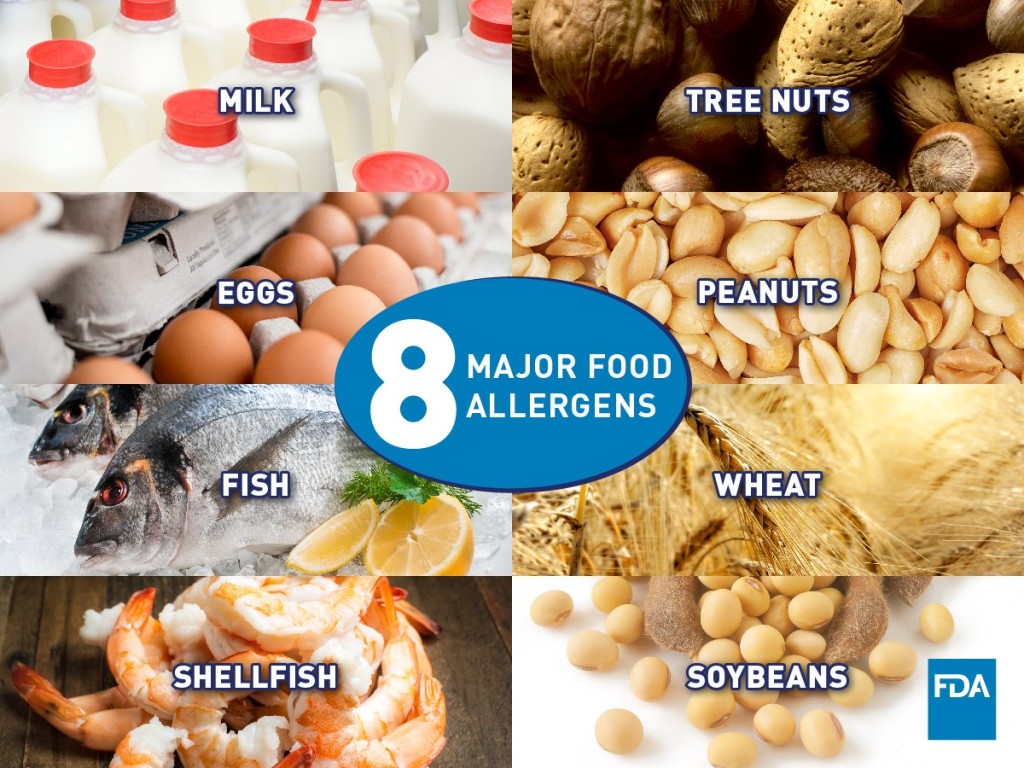Food allergies and other types of food hypersensitivities affect millions of Americans and their families. Food allergies occur when the body’s immune system reacts to certain proteins in food. The ingredients in food which cause severe allergies or other hypersensitivity reactions to the consumers are called food allergens.
Food Allergen Labeling and Consumer Protection Act of 2004, (FALCPA) is an amendment to the Federal Food, Drug, and Cosmetic Act and has identified the following eight foods as major food allergens. However, the eight major food allergens identified by FALCPA account for over 90 percent of all documented food allergies in the U.S. and represent the foods most likely to result in severe or life-threatening reactions.

Courtesy: https://www.fda.gov/files/Eight-Major-Food-Allergens-Design-1.jpg
FALCPA requires food manufacturers to label food products that contain an ingredient that is or contains protein from a major food allergen in one of two ways.
The first option for food manufacturers is to include the name of the food source in parenthesis following the common or usual name of the major food allergen in the list of ingredients in instances when the name of the food source of the major allergen does not appear elsewhere in the ingredient statement.
The second option is to place the word “Contains” followed by the name of the food source from which the major food allergen is derived, immediately after or adjacent to the list of ingredients.
FALCPA requires the type of tree nut (e.g., almonds, pecans, walnuts) and the type of fish (e.g., bass, flounder, cod) and the type of Crustacean shellfish (e.g., crab, lobster, shrimp) to be specifically declared. The law requires to label food products that contain ingredients, including a flavoring, coloring, or incidental additive that are, or contain, a major food allergen using plain English to identify the allergens.
The following foods are exempted from the new labeling requirements
- raw agricultural commodities generally fresh fruits and vegetables
- highly refined oils derived from one of the eight major food allergens
- any ingredient derived from such highly refined oil
- foods that are placed in a wrapper or container such as paper or a box for a sandwich following a customer’s order at the point of purchase
A food product that contains an undeclared allergen may be subject to recall. In addition, a food product that is not properly labeled may be misbranded and subject to seizure and removed from the market place. A manufacturer may request that a food ingredient covered by FALCPA may be exempted from FALCPA’s labeling requirements if it does not cause an allergic response that poses a risk to human health or if it does not contain allergenic protein.
Liberty Management Group gives you access to a group of labeling experts who provide assistance in Food labeling requirements along with ingredient review to be in compliance with FDA labeling regulations.
Written by: Sonia Suresh, Junior Officer (FDA Regulations)
Published on: March 23, 2021
